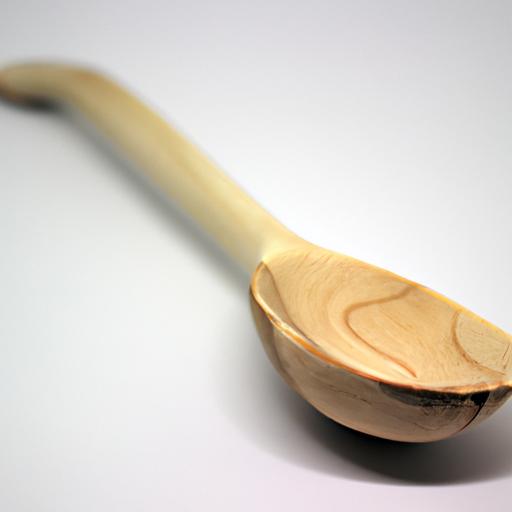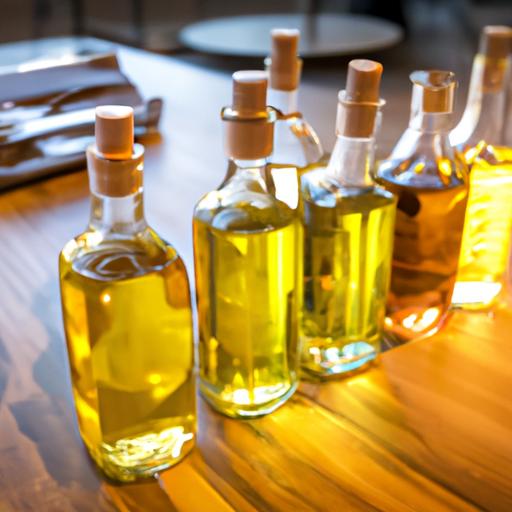Wood Cooking Spoon: Enhancing Your Culinary Experience
Introduction
When it comes to cooking, we all strive for perfection. From selecting the finest ingredients to following the most intricate recipes, every detail matters. However, one aspect that often goes overlooked is the choice of cooking utensils. The right tools can make a remarkable difference in the outcome of our culinary creations. Today, I want to introduce you to a kitchen essential that not only elevates your cooking experience but also adds a touch of natural beauty to your arsenal – the wood cooking spoon.
Wood cooking spoons have been used for centuries, and there’s a good reason why they have stood the test of time. These versatile utensils offer a range of benefits that go beyond the ordinary. Their natural properties and unique characteristics make them a must-have for any cooking enthusiast. So, let’s delve deeper into the world of wood cooking spoons and discover how they can revolutionize your time in the kitchen.
Understanding Wood Cooking Spoons
A. Types of wood commonly used for cooking spoons
Wood cooking spoons are crafted from various types of wood, each with its distinct qualities. Popular options include maple, beech, olive, and bamboo. These woods are prized for their durability, strength, and resistance to heat. Choosing the right wood ensures a long-lasting and reliable cooking companion.
B. Characteristics and properties of wood cooking spoons
Unlike metal or plastic utensils, wood cooking spoons offer a unique set of properties that make them ideal for various culinary tasks. Their gentle touch prevents scratching delicate cookware, ensuring the longevity of your pots and pans. Additionally, the natural fibers of wood prevent heat from transferring rapidly, allowing you to handle hot ingredients with ease. Moreover, wood is non-reactive, meaning it won’t alter the taste or color of your food.
C. Comparing wood cooking spoons with other materials
While there is a wide range of cooking utensils available today, wood cooking spoons stand out for their exceptional features. Unlike metal spoons that can be noisy, and plastic spoons that may leach chemicals into your food, wood cooking spoons offer a serene and safe cooking experience. They are also more eco-friendly and sustainable compared to their synthetic counterparts, making them an excellent choice for those who prioritize the environment.
Choosing the Best Wood Cooking Spoon
A. Factors to consider when purchasing a wood cooking spoon
When shopping for a wood cooking spoon, several factors should be taken into account. Consider the size and shape that best suits your cooking style and needs. Look for spoons with smooth finishes to prevent splintering or rough surfaces that may harbor bacteria. Additionally, opt for spoons made from sustainably sourced wood to support responsible forestry practices.
B. Evaluating the quality of wood cooking spoons
To ensure you invest in a high-quality wood cooking spoon, pay attention to craftsmanship and construction. Look for spoons with sturdy handles and seamless joints between the handle and spoonhead. Inspect the wood for any cracks or defects that could compromise its durability and functionality. By choosing a well-crafted spoon, you can enjoy years of reliable use in your kitchen.
Stay tuned for the upcoming sections where we will explore the care and benefits of using wood cooking spoons. Get ready to discover the secrets of these remarkable utensils that will take your cooking endeavors to new heights!
Understanding Wood Cooking Spoons
A. Types of Wood Commonly Used for Cooking Spoons
When it comes to wood cooking spoons, the choice of wood is crucial. Different types of wood offer unique qualities that can enhance your cooking experience. Let’s explore some commonly used woods for cooking spoons:
-
Maple: Maple wood is renowned for its durability and strength. It is resistant to warping, cracking, and staining, making it an excellent choice for long-lasting utensils.
-
Beech: Beechwood is another popular option for cooking spoons. It is known for its smooth grain and light color, adding an elegant touch to your kitchen. Beechwood spoons are highly resistant to heat and provide a comfortable grip.
-
Olive: Olive wood is prized for its beautiful grain patterns and rich color. It has natural antibacterial properties, making it a hygienic choice for cooking utensils. Olive wood spoons are also resistant to staining, making them easy to clean and maintain.
-
Bamboo: While technically a grass, bamboo is a sustainable and eco-friendly option for cooking spoons. It is lightweight, durable, and naturally resistant to bacteria and stains. Bamboo spoons are perfect for stirring and serving various dishes.
B. Characteristics and Properties of Wood Cooking Spoons
Wood cooking spoons offer several unique characteristics and properties that set them apart from other materials:
-
Gentle on Cookware: The soft nature of wood prevents scratching or damaging delicate cookware surfaces, such as non-stick pans or enamel-coated pots. This ensures the longevity of your kitchen equipment.
-
Heat Resistance: Wood is a poor conductor of heat, meaning it won’t transfer heat quickly to your hand while cooking. This allows you to handle hot ingredients and stir pots without discomfort.
-
Non-Reactive: Unlike metal or plastic utensils, wood cooking spoons are non-reactive. They won’t react with acidic or alkaline ingredients, preserving the natural taste and color of your food.
-
Natural Beauty: The natural grain and warmth of wood add a touch of elegance to your kitchen. Wood cooking spoons can be a beautiful addition to your culinary tools, enhancing the aesthetics of your cooking space.
C. Comparing Wood Cooking Spoons with Other Materials
While there are various materials available for cooking spoons, wood stands out for its unique advantages:
-
Silent Stirring: Unlike metal spoons that can produce annoying clanging noises against pots and pans, wood spoons offer a quiet and serene cooking experience.
-
Chemical-Free: Plastic utensils may leach harmful chemicals into your food, while metal spoons can react with certain ingredients. Wood cooking spoons are a safe and natural alternative that ensures your dishes remain chemical-free.
-
Eco-Friendly: Wood is a renewable resource, making wood cooking spoons a sustainable choice. By opting for wooden utensils, you contribute to the preservation of our environment.
Understanding the different types of wood and the unique properties of wood cooking spoons allows you to make an informed decision when selecting your ideal utensil. In the next section, we’ll delve into the factors to consider when purchasing a wood cooking spoon, ensuring you find the perfect tool for your culinary adventures.
Caring for Your Wood Cooking Spoon
A. Proper cleaning and maintenance techniques
To ensure the longevity and cleanliness of your wood cooking spoon, it is essential to adopt proper cleaning and maintenance practices. Avoid immersing the spoon in water for extended periods, as excessive moisture can cause the wood to warp or crack. Instead, hand wash your spoon with warm, soapy water immediately after use. Gently scrub the surface and rinse thoroughly, ensuring no food residues are left behind.
B. Preventing damage and prolonging the lifespan of your spoon
Wood cooking spoons require a little extra care to maintain their pristine condition. Avoid exposing them to extreme temperatures, such as placing them directly on a hot stovetop or leaving them in direct sunlight for prolonged periods. Additionally, refrain from using wood cooking spoons in high acidic or oily environments, as these substances may deteriorate the wood. Regularly oiling your spoon with food-grade mineral oil helps prevent drying and cracking, keeping it nourished and resilient.
C. Storing and drying wood cooking spoons
Proper storage is crucial to prevent damage and maintain the quality of your wood cooking spoon. After cleaning, allow the spoon to air dry completely before storing it in a well-ventilated area. Avoid storing your spoon in a damp environment, as this can lead to mold growth. To further protect the wood, consider using a utensil holder or hanging it on a utensil rack, ensuring it is not in contact with other utensils. By following these simple storage practices, you can keep your wood cooking spoon in excellent condition for years to come.
Now that you know how to care for your wood cooking spoon, let’s explore the incredible benefits of using this natural utensil in the next section. Get ready to discover the advantages that will enhance your cooking experience and bring out the best in your culinary creations!
Benefits of Using a Wood Cooking Spoon
Wooden cooking spoons offer a multitude of benefits that go beyond their aesthetic appeal. Let’s explore why these timeless utensils have become a favorite among culinary enthusiasts.
A. Heat Resistance and Non-Reactive Properties
Wooden spoons are renowned for their excellent heat resistance, making them perfect for stirring and serving hot dishes. Unlike metal spoons that can become scorching hot, wood maintains a comfortable temperature, providing you with a safe and comfortable cooking experience. Additionally, wood is non-reactive, meaning it won’t react with acidic ingredients or alter the taste of your food. This allows you to fully enjoy the natural flavors of your dishes without any unwanted metallic or plastic undertones.
B. Enhancing Flavor and Preventing Food Contamination
Wood cooking spoons have a porous nature that allows them to absorb a small amount of the liquid they come into contact with. This characteristic can be advantageous when preparing flavorful broths, sauces, or curries. As the wood absorbs and releases subtle flavors, it imparts a delicate essence to your dishes, enhancing their overall taste and complexity.
Furthermore, wood is naturally antimicrobial, inhibiting the growth of bacteria and preventing cross-contamination. Unlike plastic utensils that can harbor germs in scratches and crevices, wooden spoons can be easily cleaned and maintained, ensuring a hygienic cooking environment.
C. Eco-Friendly and Sustainable Option for Cooking
In today’s world, where environmental consciousness is increasingly important, wood cooking spoons offer a sustainable alternative to their synthetic counterparts. Wood is a renewable resource, and when responsibly sourced, it promotes the preservation of forests and reduces the carbon footprint associated with manufacturing plastic utensils. By choosing wooden spoons, you contribute to a greener planet and make a positive impact on our ecosystem.
When it comes to selecting your wooden cooking spoon, consider reputable brands that prioritize sustainable practices and use ethically sourced materials. There are various options available in the market, ranging from traditional handcrafted spoons to modern designs incorporating ergonomic features. Choose the one that aligns with your cooking style and preferences, and get ready to experience the numerous advantages of using a wooden cooking spoon in your culinary adventures.
Stay tuned as we conclude our exploration of wood cooking spoons in the upcoming section. You won’t want to miss the final insights and recommendations!

